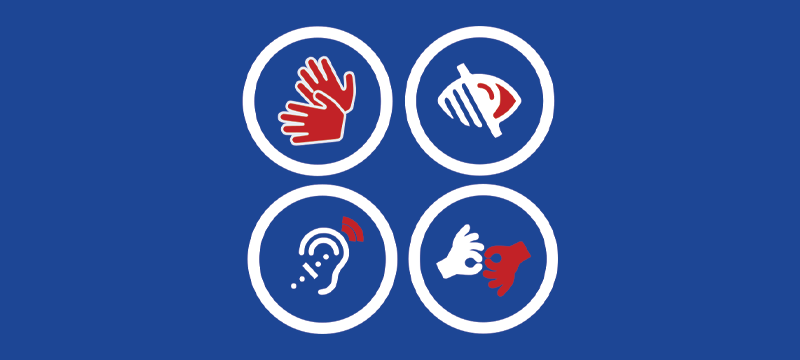According to the NHS, there are 2 million UK citizens living with sight loss and 360,000 registered as blind or partially sighted. And while many of these people will access the internet, not every website owner fully understands their obligations when it comes to catering for their needs. There are, however, laws in place to protect people with disabilities, including the blind, and unless a website provides adequate access, it could be breaking the law.
Even as far back as 1995, before the internet took off, the Disability Discrimination Act 1995 required businesses to ensure that any information services they provided were accessible to people with disabilities; and though websites were not explicitly mentioned, it is obvious that they fall into this category.
A further act, the Equality Act, 2010, one of the first pieces of anti-discrimination legislation to take place after the birth of the internet, likewise prohibits organisations from excluding any individual from using their services because of a disability. However, unlike the Disability Discrimination Act, it does list websites as types of business which need to comply with it.
What does the Equality Act 2010 say about websites?
The first relevant section of the act, Section 20, informs us that websites have a duty to ‘make adjustments’ for disabled people, taking ‘reasonable steps’ to ensure that people living with and without disabilities have equal experiences. The practical solution mentioned in the act is to provide an auxiliary aid in order to help those with a disability have the same access as everyone else. For websites, this includes providing information in an accessible format, for example, having an audio alternative for the blind and subtitles or signing in videos for the deaf.
Following this, Section 29 of the act explains that website owners providing any kind of service to the public, whether for payment or not, must not discriminate against someone who requires that service by failing to provide it. In other words, if you provide information at all, it needs to be accessible to everyone, otherwise, you will be discriminating against those who cannot access it. If a blind person cannot read it, you therefore have an obligation to provide that information in a way which they find accessible. This, of course, applies to all websites, whether they provide access to services and products or are a service in themselves, such as in providing entertainment or information.
What does this mean for websites?
The principal consideration is that, as a website owner, you will need to take positive steps to make sure that people with disabilities can access services and this means anticipating the adjustments you will need to make for different types of disability. For example, if you have text embedded into graphics and images, such as in header images or infographics, then those with visual impairment might not be able to access it through some of the web accessibility tools they use. The text in the image might not be read out by text-to-speech applications that blind people rely on and even those with partial sight won’t be able to adjust the font size to make it easier to read. To avoid being discriminatory, you should describe the image in the Alt-tags and rewrite the text embedded in the image in the image caption.
Can you be prosecuted for not making your site accessible?
The chance of being prosecuted is small. Online accessibility, at present, doesn’t seem to be rigorously policed. That said, the Royal National Institute for the Blind has begun legal action with a number of unnamed organisations for discrimination and these have led to out of court settlements.
What complicates the policing and makes legal action more challenging, is the term ‘reasonable adjustment’. This is because ‘reasonable’ looks at the adjustments on the website in the context of the website owner’s circumstances. What is reasonable for one organisation, is not necessarily reasonable for another. The organisation’s finances, its access to resources and expertise, the potential disruption to its operations by carrying out adjustments, etc., are all taken into consideration. So, what’s anticipated from a personal blog or small business website, might be quite different to what’s expected on the site of a larger company.
There are, however, good business reasons why websites should be accessible to all. Those two million people with sight loss are a significant segment of the market and, like every other type of customer, if you don’t cater for their needs, they’ll take their custom elsewhere. They’ll also rate and review your business online and share their experiences on social media. Doing everything within your means to make sure your site is accessible, therefore, does more than make you comply with legislation, it can also enhance your reputation and increase sales.
For information on our wide range of affordable hosting solutions, visit our homepage.


